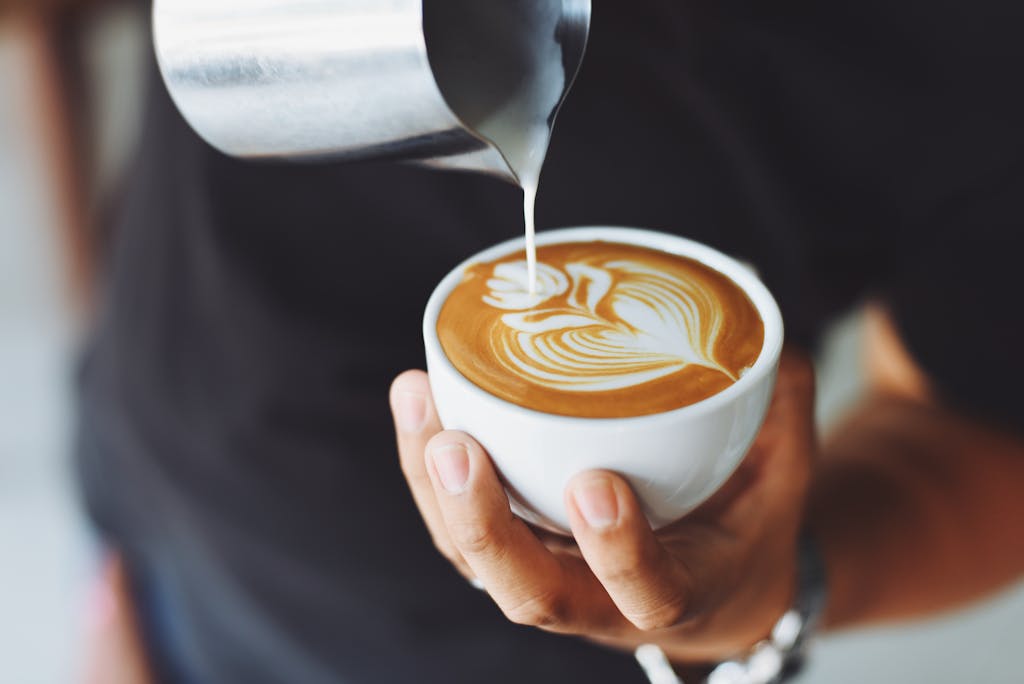FREE SHIPPING OVER $50
Burn Fat While Drinking Coffee? The Loophole You’ve Missed
Coffee is more than a morning pick-me-up. Recent buzz suggests it could be the ultimate weight-loss secret. But does sipping your favorite brew really help you burn fat, or is it just wishful thinking? Let’s break down the science, trends, and actionable tips behind this intriguing claim.
The Science Behind Coffee and Weight Loss

Coffee is packed with compounds that might support weight loss, making it more than just an energy booster.
- Caffeine: A natural stimulant that affects the central nervous system, caffeine can increase your metabolic rate, leading to more calories burned even at rest. Studies suggest that caffeine can enhance fat oxidation, especially during exercise. It also helps in mobilizing fat from fat tissues, making it available for energy use.
- Chlorogenic acids: These antioxidants may slow the absorption of carbohydrates in the digestive tract, reducing blood sugar spikes. This not only helps in weight management but also lowers the risk of developing insulin resistance over time.
- Thermogenesis: Caffeine triggers thermogenesis, the process by which your body generates heat by burning calories. This effect is particularly helpful for those looking to shed fat, as it gives the metabolism a temporary boost.
While these properties are compelling, remember that coffee alone won’t do the heavy lifting. It works best when paired with a balanced diet and consistent physical activity.
The “Coffee Method” for Fat Burning
The “coffee method” is about harnessing coffee’s natural benefits while sidestepping common pitfalls. The idea is to make intentional tweaks to your coffee-drinking habits to enhance its weight-loss potential.
- Drink it black: Black coffee is virtually calorie-free and doesn’t interfere with your body’s ability to burn fat. Adding sugar, cream, or flavored syrups turns your drink into a high-calorie dessert.
- Time it right: Drinking coffee 30 minutes before a workout can amplify fat oxidation. The caffeine acts as a performance enhancer, helping you push harder and burn more calories.
- Moderation is key: Overloading on coffee can lead to jitteriness, increased heart rate, and disrupted sleep—all of which can hinder weight loss. Stick to 2–3 cups a day to avoid negative effects while still reaping the benefits.
- Avoid late-night caffeine: Drinking coffee late in the day can interfere with your sleep cycle. Poor sleep can lead to weight gain by disrupting hormones like leptin and ghrelin, which regulate hunger and appetite.
The coffee method isn’t about quick fixes; it’s about smart, sustainable choices that fit seamlessly into your lifestyle.
Popular Supplement-Infused Coffee Trends
Supplement-infused coffee has taken the health and wellness world by storm. These trendy coffee hacks claim to amplify the drink’s natural benefits.
- MCT oil: Medium-chain triglycerides (MCTs) are fats that are quickly digested and used for energy. When added to coffee, they may boost fat burning and provide sustained energy throughout the day. This is the cornerstone of bulletproof coffee, popular in keto diets.
- Collagen powder: Collagen supports skin elasticity, joint health, and muscle recovery. Adding it to coffee can provide a protein boost, keeping you full longer.
- Turmeric: Known for its anti-inflammatory properties, turmeric adds a unique flavor and can help reduce oxidative stress, which is beneficial for overall health and weight management.
- L-theanine: This amino acid, often combined with caffeine, helps balance its stimulating effects. It promotes calmness and focus, making it ideal for people sensitive to caffeine.
While these add-ins can offer benefits, be mindful of the extra calories and ensure they align with your dietary goals.
Is It Too Good to Be True? The Potential Downsides
While coffee has undeniable benefits, overreliance on it for weight loss can backfire.
- Insomnia and stress: Too much caffeine can overstimulate the nervous system, leading to poor sleep and increased cortisol levels. High cortisol can contribute to fat storage, especially in the abdominal area.
- Nutritional gaps: Relying on coffee for energy might mask deeper issues like inadequate nutrition or hydration. It’s a great supplement to a healthy lifestyle but shouldn’t replace balanced meals.
- Hidden calories: Fancy coffee drinks often contain syrups, whipped cream, and other calorie-dense additions. A daily caramel latte, for example, can quickly offset your caloric deficit.
Understanding these pitfalls can help you maximize coffee’s benefits without sabotaging your progress.
Coffee and Intermittent Fasting
Coffee plays a significant role in intermittent fasting, a popular eating pattern for weight loss. Black coffee is often used during fasting windows as it doesn’t break the fast and can help suppress appetite.
Additionally, caffeine boosts energy levels, making it easier to power through fasting periods. Its thermogenic properties also align well with the fat-burning goals of intermittent fasting. Just ensure you’re hydrating properly, as coffee’s diuretic effects can lead to dehydration.
Best Practices for Coffee and Weight Loss
Incorporating coffee into your weight-loss routine requires a strategic approach.
- Choose high-quality beans: Opt for organic, single-origin coffee to avoid chemicals and additives that may diminish its health benefits.
- Limit sweeteners: Use natural alternatives like cinnamon or a splash of unsweetened almond milk to keep your coffee low-calorie.
- Pair with exercise: Drinking coffee before a workout can enhance endurance and fat-burning potential.
- Listen to your body: Monitor how coffee affects your energy, appetite, and sleep. Everyone’s tolerance is different, so adjust accordingly.
Sample Day Using the Coffee Method
Here’s how you can integrate coffee into a typical day:
- Morning: Start your day with a cup of black coffee alongside a nutrient-dense breakfast of scrambled eggs, spinach, and avocado.
- Pre-Workout: Have a small cup of coffee 30 minutes before hitting the gym to enhance your performance and fat oxidation.
- Midday: Rehydrate with water and pair a light lunch with green tea or decaf coffee to balance your caffeine intake.
- Afternoon pick-me-up: If you need an energy boost, enjoy a small black coffee with a handful of nuts or a piece of fruit.
The Verdict: Can Coffee Help You Burn Fat?
The evidence suggests that coffee can indeed support weight loss, but it’s not a miracle solution. To get the most out of your brew, drink it black, time it strategically around workouts, and avoid sugary add-ins. Think of coffee as a helpful tool, not a standalone strategy.
Coffee’s role in weight loss is most effective when combined with a healthy diet, regular exercise, and proper sleep. With the right approach, your daily cup of coffee could do more than wake you up—it might just help you reach your weight-loss goals while staying deliciously satisfying.
Related Articles
- How Collagen Coffee Supports Weight Loss
- Why They Call This Fiber Supplement “The Poor Man’s Ozempic”
- Is Intermittent Fasting the Secret to Rapid Weight Loss?
- One Simple Change to Your Night Routine That Melts Fat While You Sleep
- The Surprising Morning Ritual That Burns Belly Fat—It Takes Less Than 5 Minutes
- Can Drinking Green Tea Daily Help You Melt Away Stubborn Fat?







